Event Summary
Lancashire Development Update | Photos and summary
“Lancashire is a county to watch,” said Julia Hatmaker, editor of Place North West, as she opened the 2023 Lancashire Development Update on 9 February.
Her statement proved to be correct as the event’s guest presentations and panel discussions were packed with major projects taking place right across the area – from the region’s coast to its towns and cities.
Held at the Deepdale Stadium, home of Preston North End Football Club, the event was a sell-out, with more than 250 people in the room.
Lancashire Development Update sponsors were Onward Homes, LUC, Telcom, FI Real Estate Management, Martin Property Group, Blackpool Council, and Blackburn with Darwen Council.
Scroll down to see photos and slides from the event.
‘Strong and stable’ Blackburn
“There’s a big year ahead,” said Martin Kelly, strategic director for growth at Blackburn with Darwen Council, as he took the stage as the first speaker at the event.
“Our approach [at Blackburn] is strong and stable with consistent leadership,” he said. “It gives confidence to developers. It’s about delivery.”
He was talking about the council’s plans to unlock £1bn of new economic activity and 100,000 jobs in Blackburn through a new local plan, the Darwen Town Deal, and the £30m Junction 5 growth corridor – as well as the National Cyber Force HQ being created just three miles from his local authority’s boundary.
“We are city-esque in what we do,” he said. “Local authority boundaries are meaningless when there are opportunities in and adjacent to the borough.”
Other key examples included the £250m Blackburn town centre masterplan and a £60m skills and education campus. There is also, in Kelly’s words, the “rising from the ashes” £7m St John’s Church transformation, which will bring a fire-damaged ruin back to life, and a £50m creative and digital quarter, creating “the sort of workspace you would expect in Manchester or Liverpool”.
He also shone the spotlight on Darwen and its £100m investment plan. This includes £25m from the government’s Town Deal fund for the regeneration of the town centre and its historic landmarks, as well as new living accommodation.
Kelly added: “It’s not just about the grants. It’s about how we bring a multi-year development opportunity with our partners in this spectacular setting.”
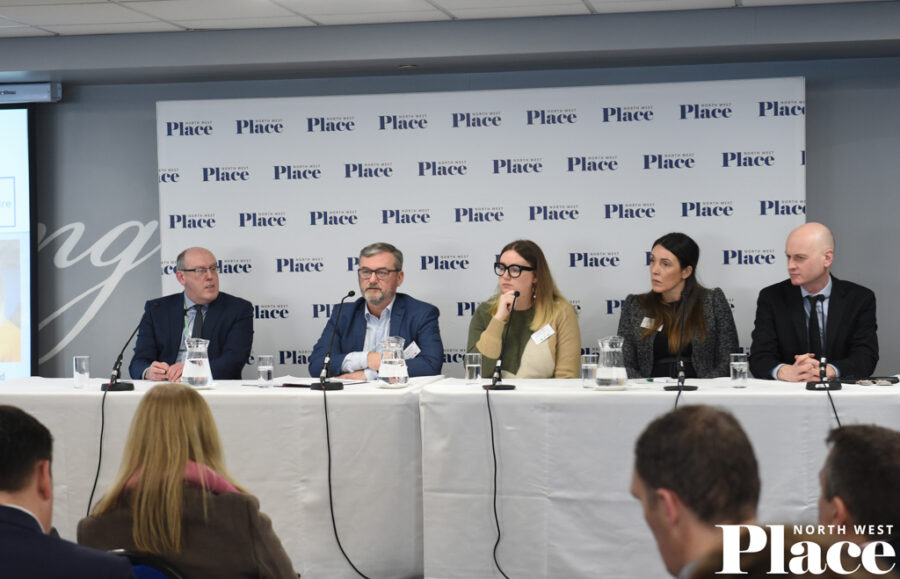
From left: Blackburn with Darwen Council’s Martin Kelly, Onward Homes’ Sandy Livingstone, Wilson Mason Architects’ Eleanor Wood, FIREM’s Emily Armstrong, and Preston City Council Leader Cllr Matthew Brown. Credit: PNW
Lancashire today
The first panel discussion began with the participants’ thoughts on where Lancashire stands today.
“Lancashire has many opportunities,” said Cllr Matthew Brown, Leader of Preston City Council. “We need to look at the ways they benefit the communities.”
He was referring specifically to inequalities, particularly those which have become more obvious during the pandemic.
Emily Armstrong, senior development manager at FI Real Estate Management, said there are currently strong opportunities to bring more life to Lancashire’s town centres, and also to retain people in the county.
Sandy Livingstone, executive director of property at Onward Homes, added: “There needs to be a strong focus on placemaking. Give people a reason to invest. Improve the housing, improve the offer and never stop shouting about better transport.”
Kelly concluded: “Lancashire PLC needs to be working much harder.”
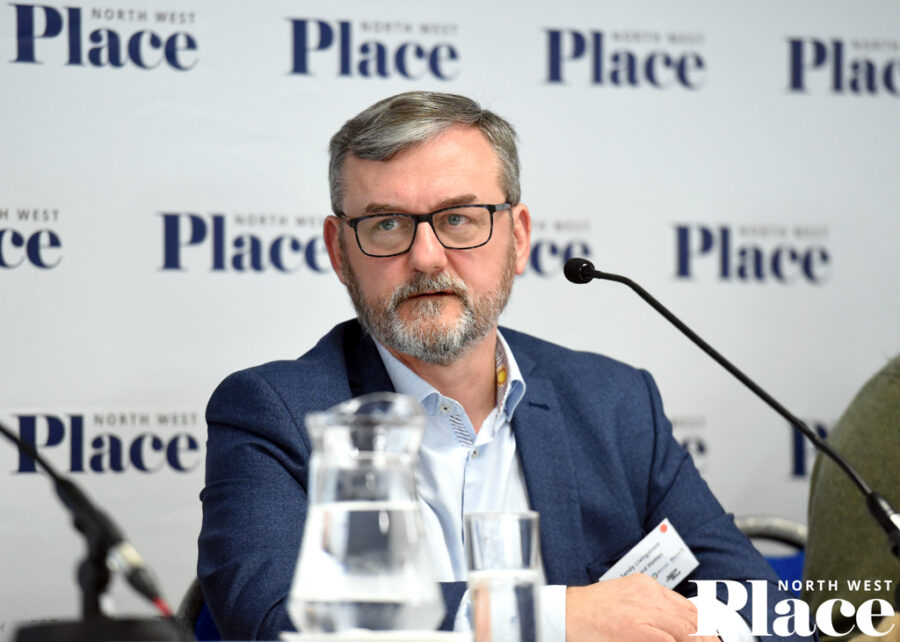
Lancashire’s housing market is ‘more resilient than others according to Onward’s Sandy Livingstone. Credit: PNW
Better homes
Creating better housing stock was a recurring topic throughout the event – whether new build or refurbishment and retrofit.
Livingstone said he would like to see more brownfield development to help unlock investment and added: “Lancashire is more resilient than some housing markets in the North West.”
During the event’s second panel, Nick Gerrard, growth and prosperity programme director for Blackpool Council, also touched on the issue.
“Crap housing is causing health problems. If we want to transform people’s lives, we have got to get them in decent accommodation,” he said.
Government cash
Hatmaker asked if government cash was crucial to the county’s future.
Eleanor Wood, associate at Wilson Mason Architects, replied: “It’s really important but we shouldn’t rely on it entirely. It’s about creating opportunities and spark – and then partnering with business.”
Kelly pointed out that Lancashire was competing with the likes of Manchester for funding on top of individual challenges.
“Some sites are tricky,” Kelly said, “and we need some genuine help to support them.”

Attendees at the Lancashire Development Update included Karen Hirst of Maple Grove Developments. Credit: PNW
Thriving towns
Wood also talked about business and how, in Leyland, there was a strong focus on micro and SMEs, while making sure they don’t outgrow the town: “We need to try to keep businesses and economy in the area,” she said.
Talking specifically about town centres, Wood added: “It’s not about helicoptering Altrincham Market into Leyland. It’s about bringing more housing into the town centre so it is occupied 24 hours a day, reducing cars and prioritising pedestrians and cyclists, and breathing life into the town.”
Speaking about how Lancashire’s towns all have their own identities, Wood said: “We collaborate really well but all have passionate beliefs about our own areas.”
Building in the Green Belt
Always a contentious issue, this is something that Lancashire perhaps struggles with more than most due to nearly a quarter of its land being in the Green Belt. Preston’s Brown said there were issues around land banking, while FIREM’s Armstrong and Blackburn’s Kelly were in agreement when they said there was a need to “buckle up and go for it” and to “bite the bullet”.
Politics and economic growth
When asked if political motivations had an impact on economic growth, Kelly said: “Local government needs to be empowered. We need to have a democratic system and we need to have politicians with a vision”
Onward’s Livingstone added: “The danger of removing political oversight is you get developments that don’t reflect communities.”
Brown added: “We have to tackle the levels of inequalities and to do that we have to have similar powers to Greater Manchester. It’s about a thriving fair economy.”
There’s another key factor, Brown said. “We need to have politicians with a vision.”

From left: Blackpool Council’s Nick Gerrard, Lancashire County Council’s Simon Lawrence, AG Built Environment Consultancy’s Paul Westhead, Marketing Lancashire’s Rachel McQueen, and Story Homes’ John Winstanley. Credit: PNW
Lancashire 2050
Politics was also a key discussion point in the second panel. While the first panel was focused on the immediate future of the county, the second took a longer-term view.
Lancashire County Council’s Lancashire 2050 vision was highlighted. The document represents a strategic framework for all 15 councils in the county.
Simon Lawrence, director of growth and regeneration at Lancashire County Council, said of Lancashire 2050: “It’s a starting point to say ‘look, government – this is what we can achieve by working collaboratively’.”
Paul Westhead, development director at AG Built Environment Consultancy, agreed: “The need to act together is fundamental.
“All the towns are doing great work. Every town and area has a great story to tell. But as a county we are not punching at our weight.”
Blackpool’s Gerrard said: “What will bring people together is if the prize is big enough. It’s the common interest that there is something more to be gained.
“What we must have is a plan to strategically make the most of Lancashire to get the best for the people who live here.”
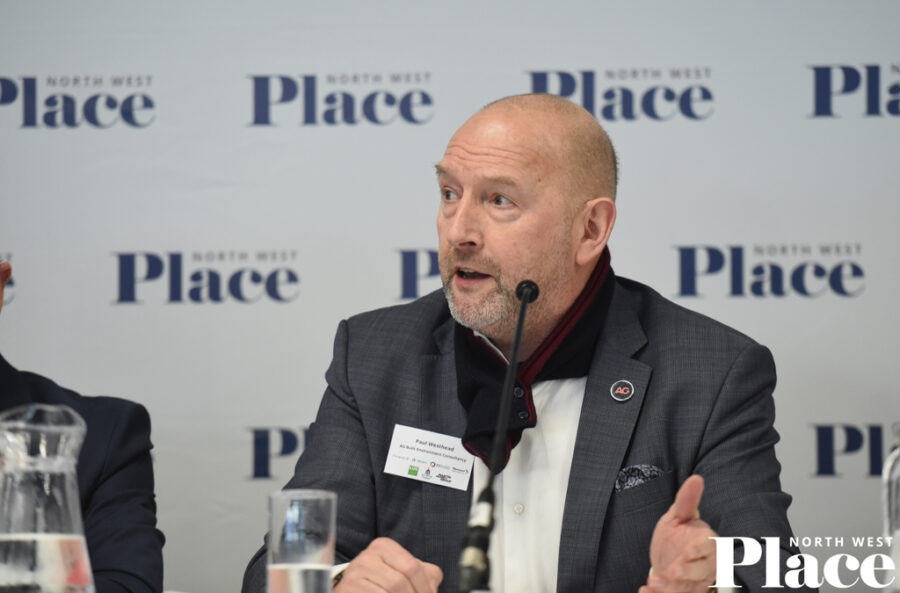
AG’s Paul Westhead said that the need for the county to work together was ‘fundamental’. Credit: PNW
The mayor debate
On the subject of a mayor, Westhead said: “We need to have a singular voice that is controlling the message and achieving what Lancashire needs. We need to identify somebody that has the status and capacity to speak – but it needs the authorities to come together and speak as one.”
But Lawrence cautioned: “County leaders need to see how far they can push this and not wait for the decision about a mayor.”
Rachel McQueen, chief executive of Marketing Lancashire, added: “We need to focus on what we can do – our shared ambition – and switch the mentality, with or without a combined authority and with or without a mayor.”
Planning policy
The subject turned to the National Planning Policy Framework and the aims of government departments like Homes England.
Westhead said: “My biggest gripe is about regeneration. We have to create public realm and mix an area’s needs – not just hit some target.”
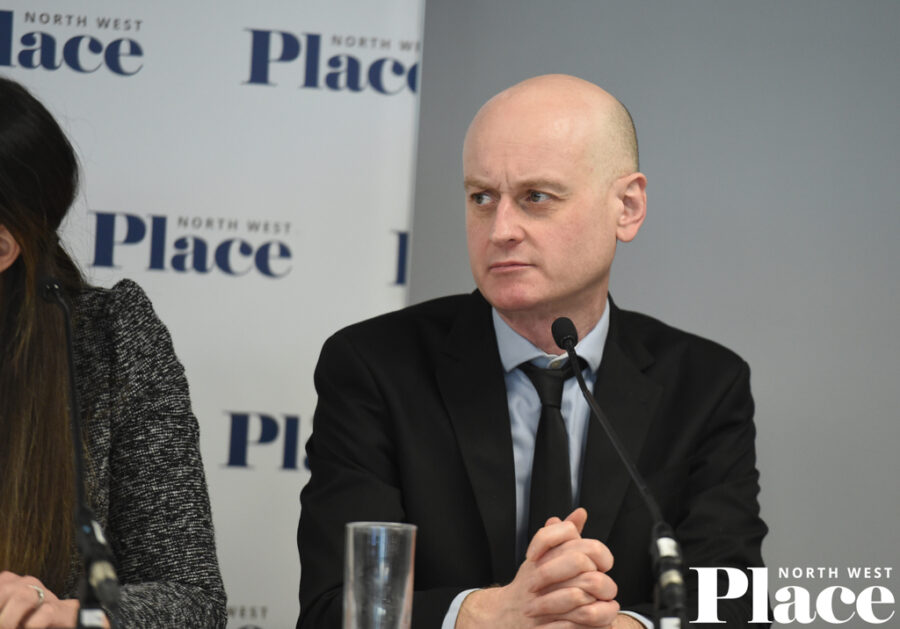
Cllr Matthew Brown advocated for focusing more on the levels of inequality in Lancashire. Credit: PNW
What’s the problem?
Both panels were asked what the biggest problems were for Lancashire.
During the first, Kelly said a lack of strategic leadership was holding the county back and meant it wasn’t included in national conversations. “We are disadvantaged,” he added.
Onward’s Livingstone said: “The quality of housing has to be better. We need to replace some of the housing that exists and not just build on new sites.”
Skills retention was highlighted by Armstrong who said people were heading to Manchester or Liverpool instead: “That feeds into housing and jobs and keeping the next generation here.”
Preston’s Brown added: “We have to tackle the levels of inequality. We need to have similar powers to Greater Manchester. We need a thriving fair economy.”
Wilson Mason’s Wood said: “Transport is really key. It’s just rubbish, isn’t it?”
During the second panel, AG’s Westhead echoed Wood. “Manchester works well because of its tram system,” he said. “Our abilities in Lancashire are restricted.”
A show of hands revealed nearly everyone attending had driven to the Deepdale Stadium.
When asked how to fix the travel problem, Blackpool’s Gerrard said: “The answer to the question is investment. Abroad, you know it is reliable. If we want to take advantage of the jobs coming in, you also need to provide the transport links to get there.”
John Winstanley, managing director of Story Homes, reminded the audience that sustainable travel is more than just trains.
“Rail connections into Manchester are good,” he said. “Now if we can strengthen bus services it would regenerate lots of areas. Public transport is key to investment.”
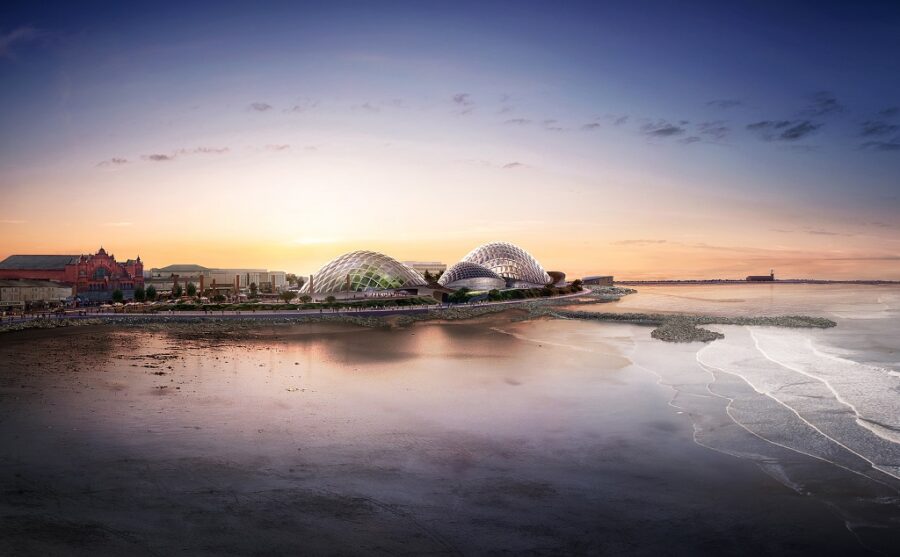
Eden Project Morecambe was praised as begin a ‘game changer’ for the area. Credit: via planning documents
Hot spots
The news that Eden Project Morecambe has been awarded £50m from the Levelling Up Fund delighted every panel participant. FIREM’s Armstrong described it as a “fantastic opportunity”, while Winstanley said the visitor attraction, along with the National Cyber Force base in Salmesbury were “game changers in terms of their offer in the county”.
Westhead said: “If you want a hot spot, go buy in Morecambe or Salmesbury quickly.”
But developing in those areas is more than just plonking down new neighbourhoods and offices.
Winstanley said: “When we bring schemes forward it’s important that we are not competing, we are complementary, and there are opportunities for local industry to have access to bid and space to co-locate nearby. I have never seen planning as politicised as it is at the moment.”
Marketing Lancashire’s McQueen said she was excited about the “power of the visitor economy” in the county, and added: “Lancashire is an incredible place to live and work. It’s not just a commuter belt. We need to drive that into the visitor economy.”
On the subject of Eden Project Morecambe, she said the county needed to work hard not to lose the attraction’s national and international visitors into the Lake District: “We need to capitalise on this for the rest of Lancashire. I need to promote the rest of Lancashire – I don’t need to promote the Eden project, they will do that. People are not aware enough of what we [as a county] have to offer.”
Lancashire County Council’s Lawrence also talked of the wider impact the project will have: “It is a fantastic investment but it is much more than that. It’s wider regeneration, links to schools and employment opportunities, and collaboration with the councils, universities and SMEs.”
Brilliant Blackpool
In the day’s second presentation, Gerrard showcased a programme of development worth more than £1bn. He also described 2023 as a “big year”, outlining three main objectives for the seaside town – the Talbot Gateway town centre regeneration, extending the tourist season in Blackpool Central, and capitalising on enterprise zone opportunities.
“Historically, Blackpool has been dependent on hospitality,” he said, “but what we want is more higher-paid jobs in the growth sector.”
He went on to detail some of the projects taking place right now, such as the Talbot Gateway tram and transport interchange and business district around the railway station, a £100m project which includes a civil service hub, and a ‘multiversity’ education campus. A Holiday Inn, Hampton by Hilton and Marco Pierre White restaurant will also boost the town’s new accommodation offer.
He explained some of the challenges, like relocating a dentist with 60,000 patients into a historic pub building, and solving the problem of a Wilko store blocking the ideal tram route extension to the train station.
In Blackpool Central, the focus is on tourism – including a heritage quarter, aparthotel, food and beverage offer in a listed former cinema and a new ‘showtown’ museum, one of the biggest IMAX screens in the country, and the rejuvenation of the famed illuminations.
Meanwhile, work is also starting on the major infrastructure at the Blackpool Airport Enterprise Zone – an £84 million project. The airport is owned by the council and, while the airside activities continue, there is an overall objective to create thousands of jobs.
Gerrard added: “We are at the stage of realising more sites for more investment.”
Slides
Blackburn with Darwen Council’s presentation slides
Blackpool Council’s presentation slides
What’s next?
Keen to learn more about local authority’s plans for development? Want tips on how to secure public sector contracts? Place North West’s Meet the Authorities: public-private partnerships conference will be held on 30 March in Manchester.
Click on any image to launch the gallery




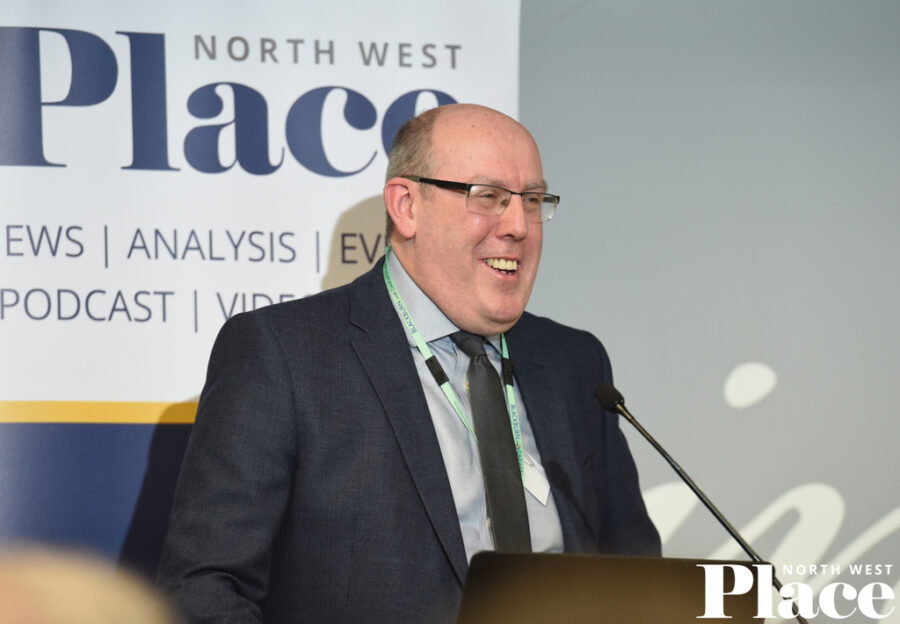
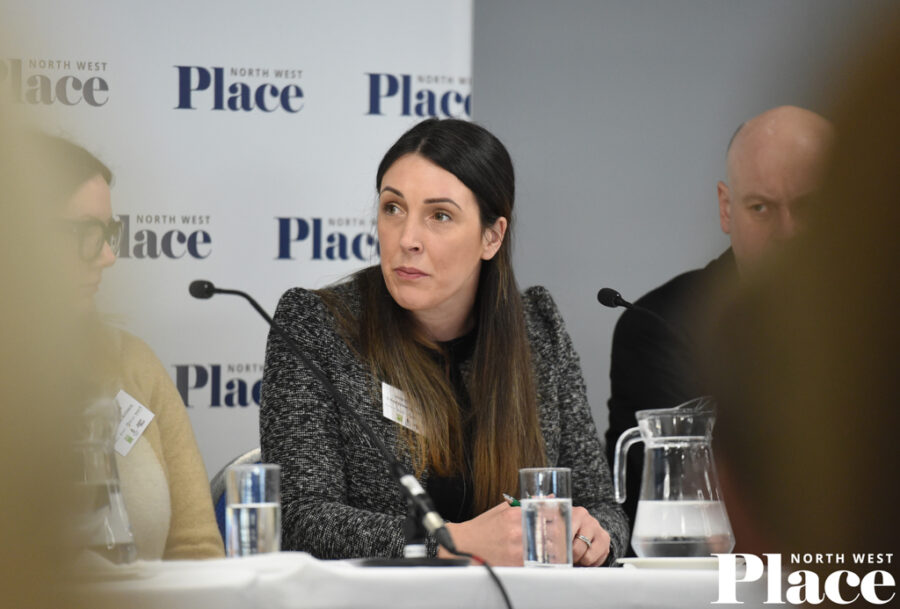
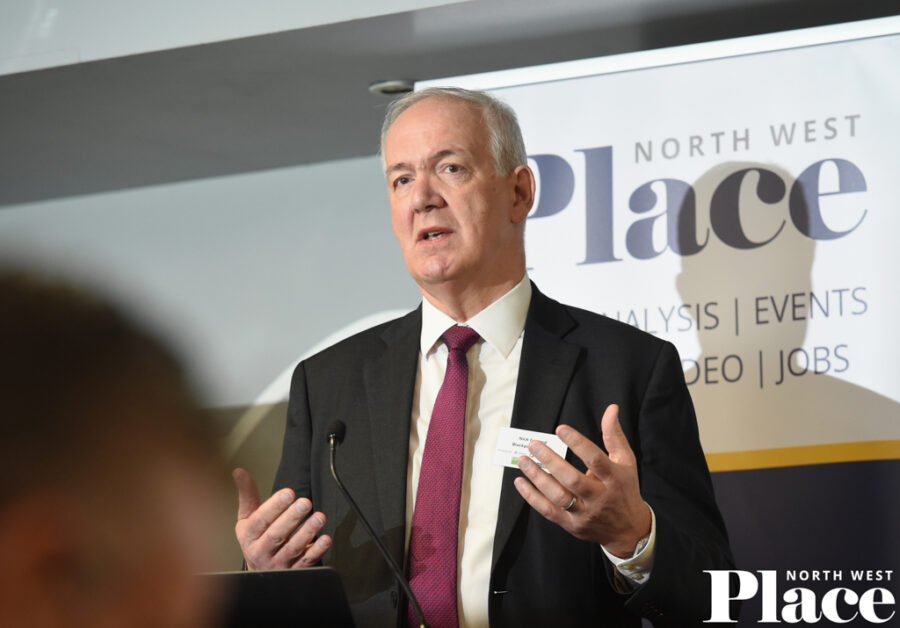
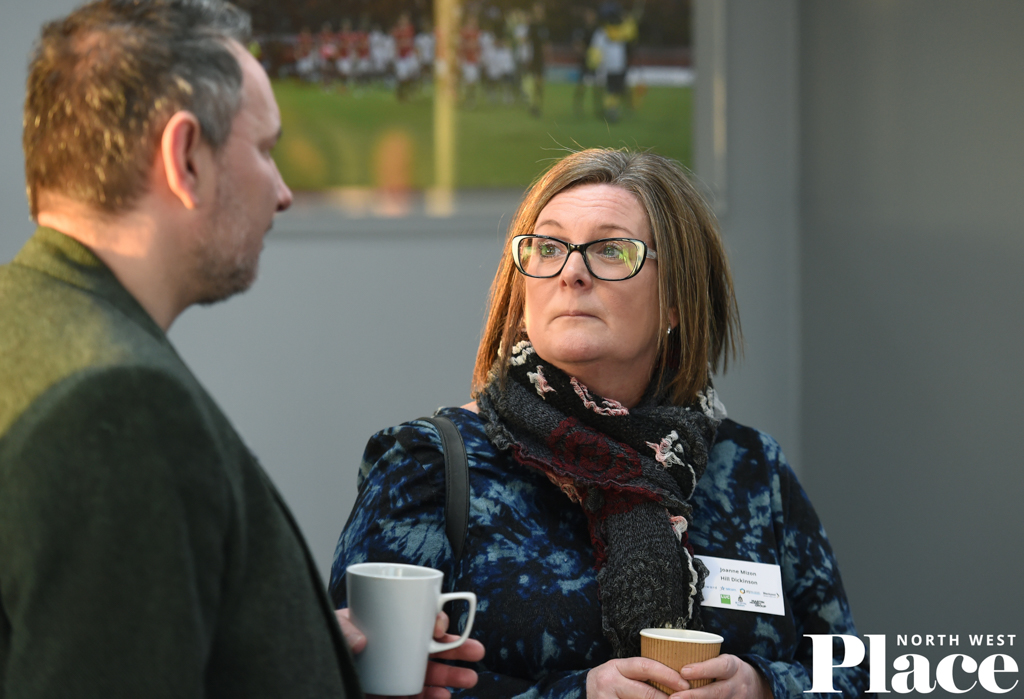

















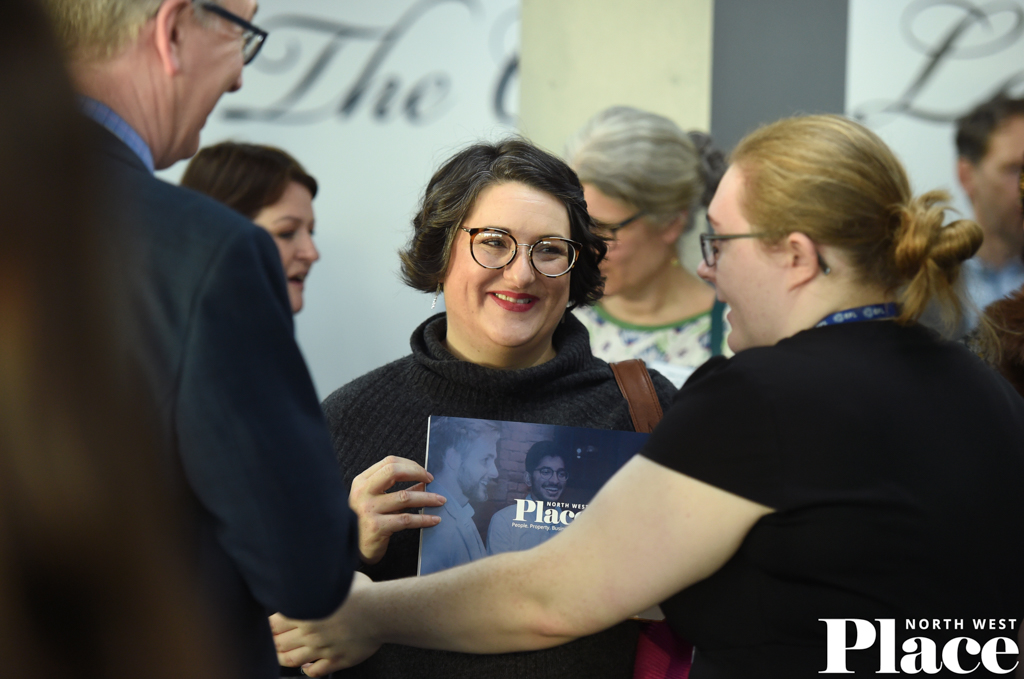

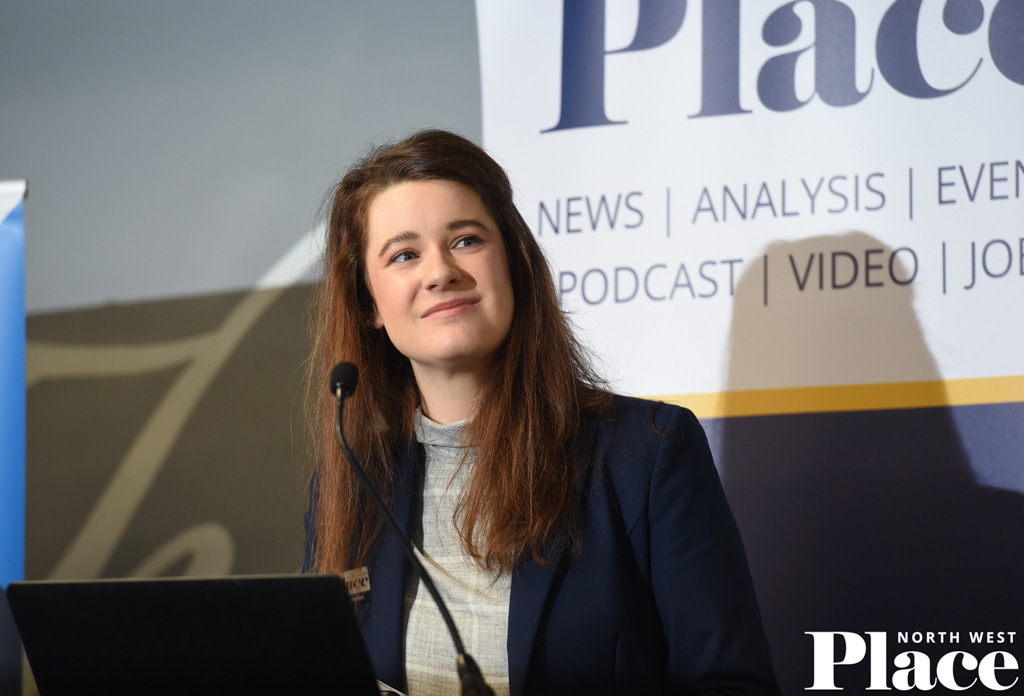
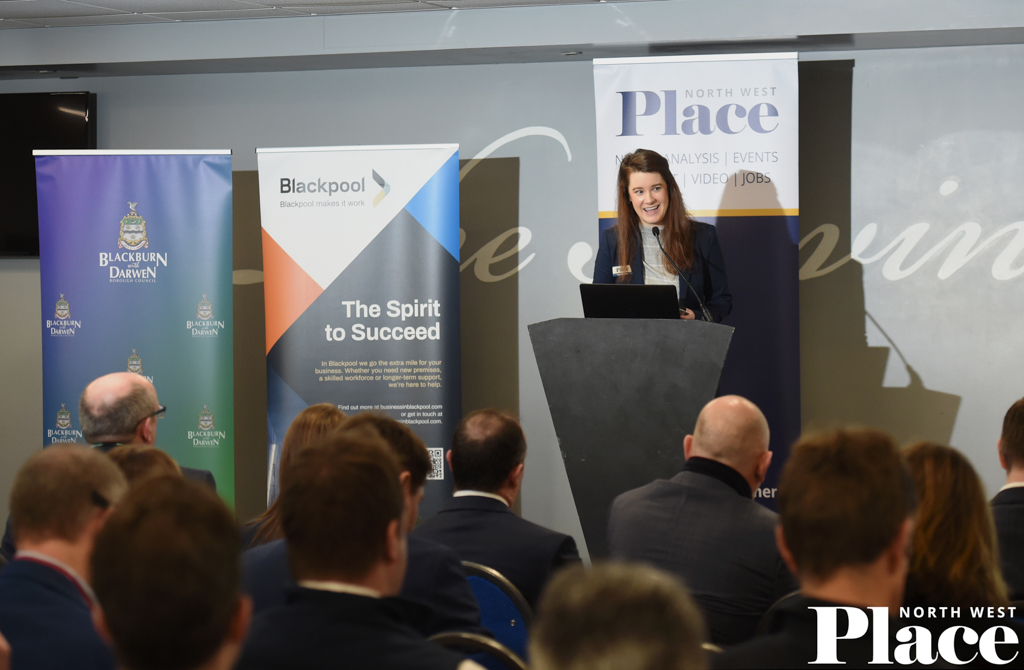
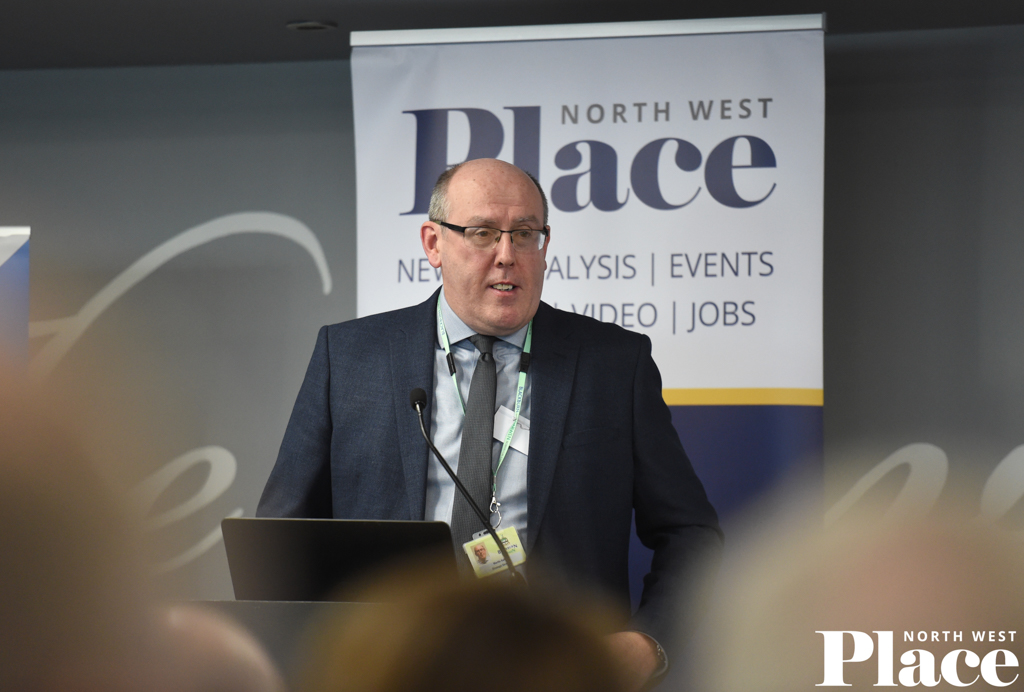
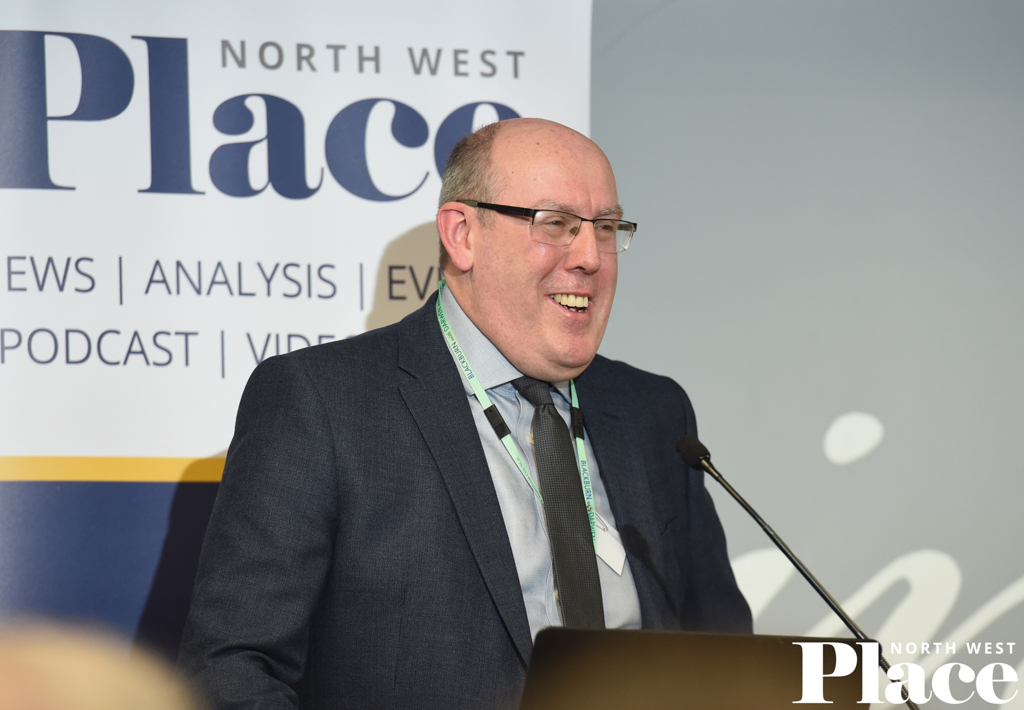
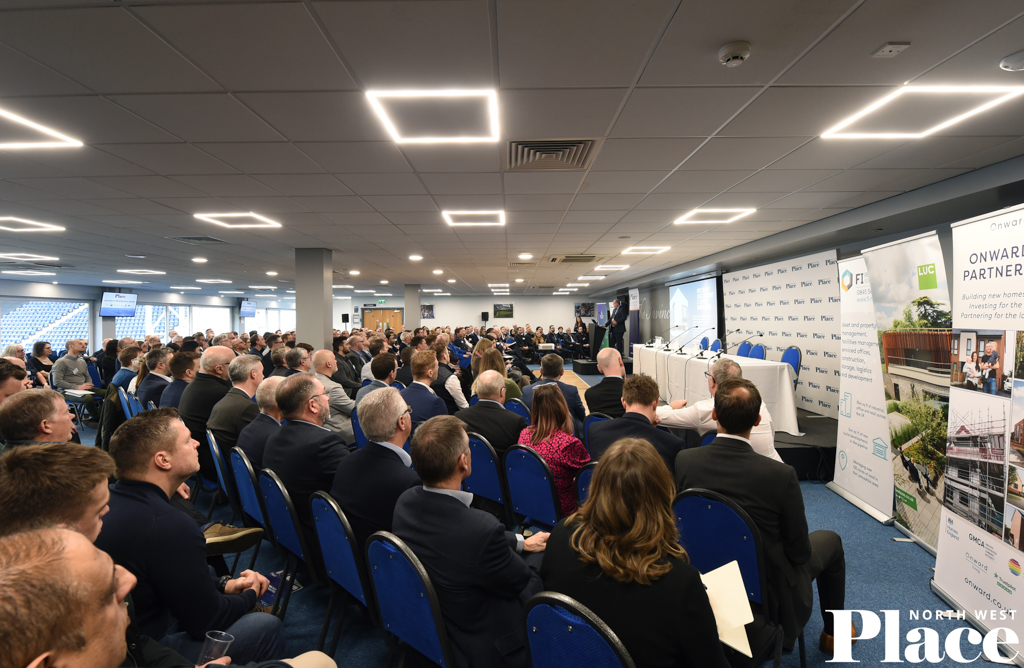
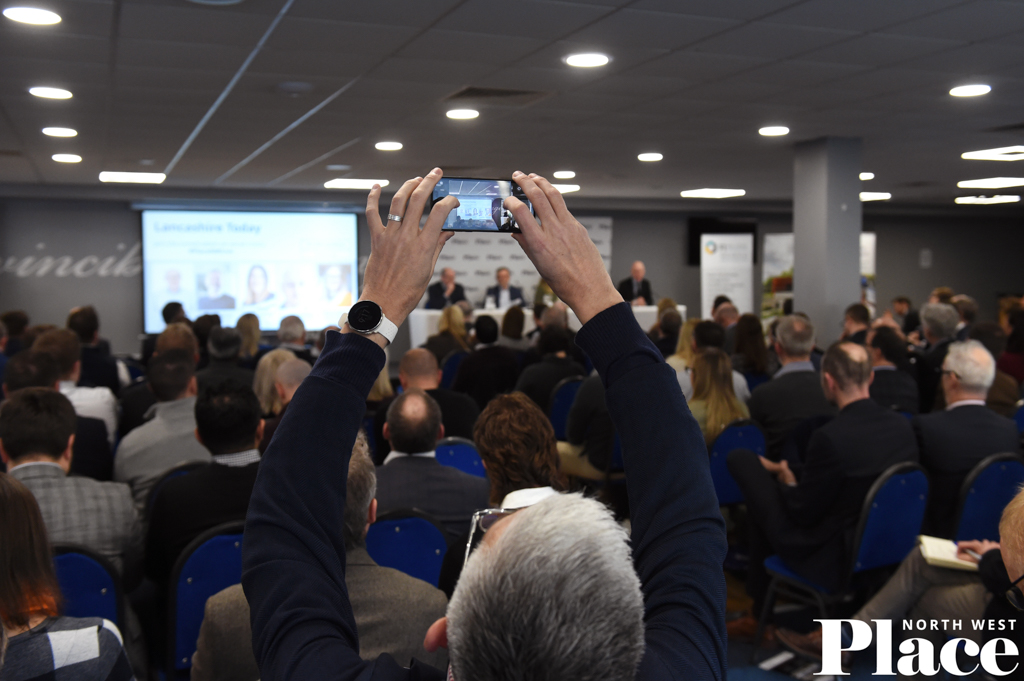

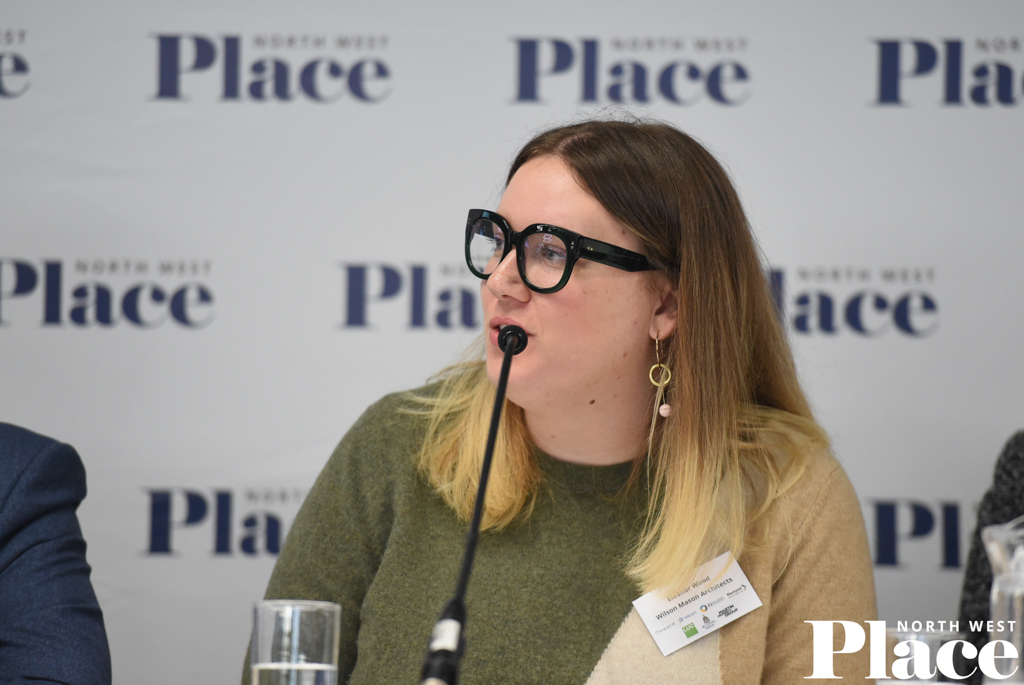
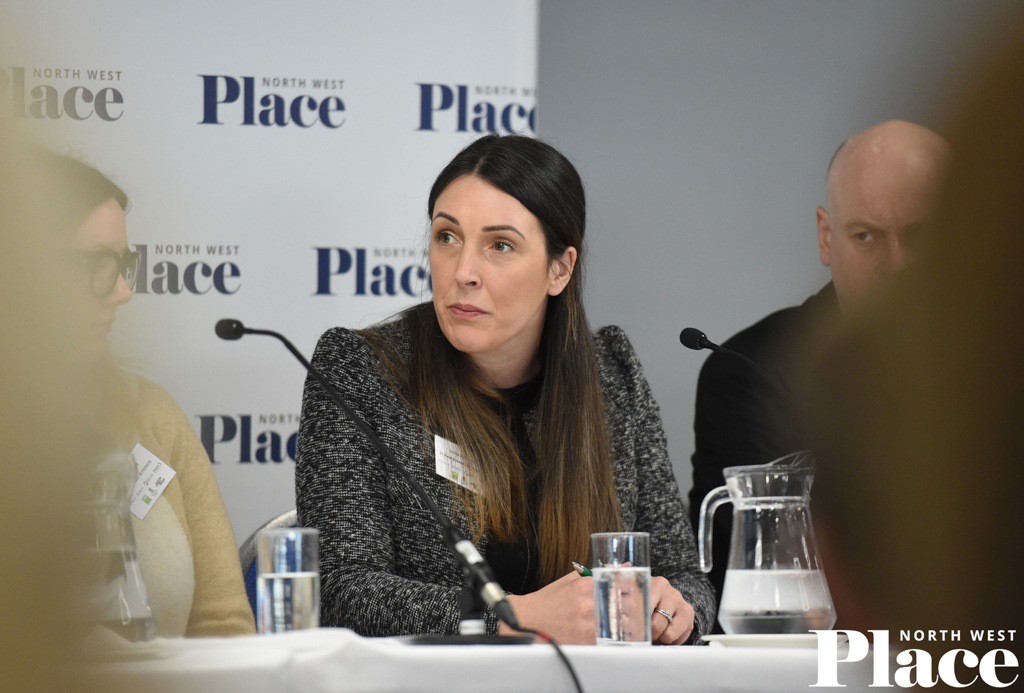
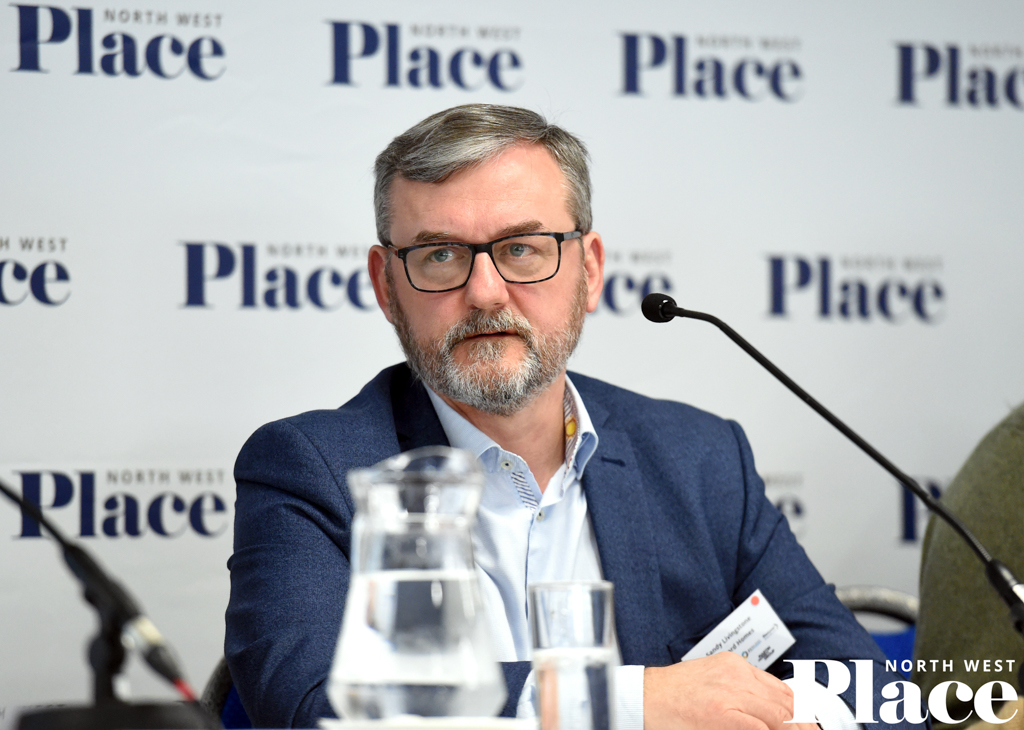
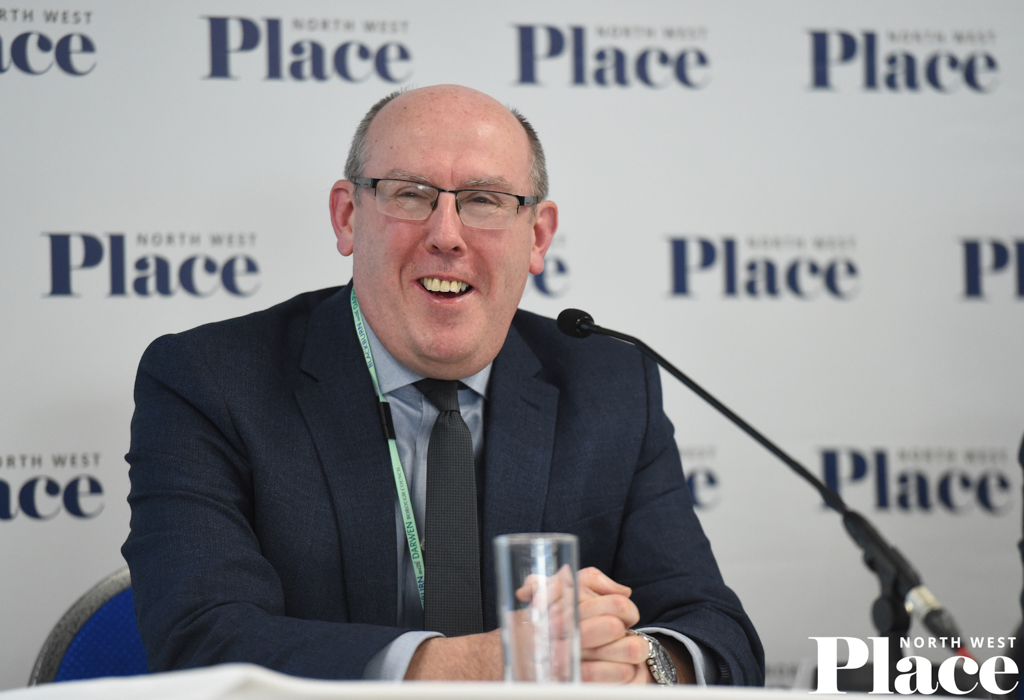





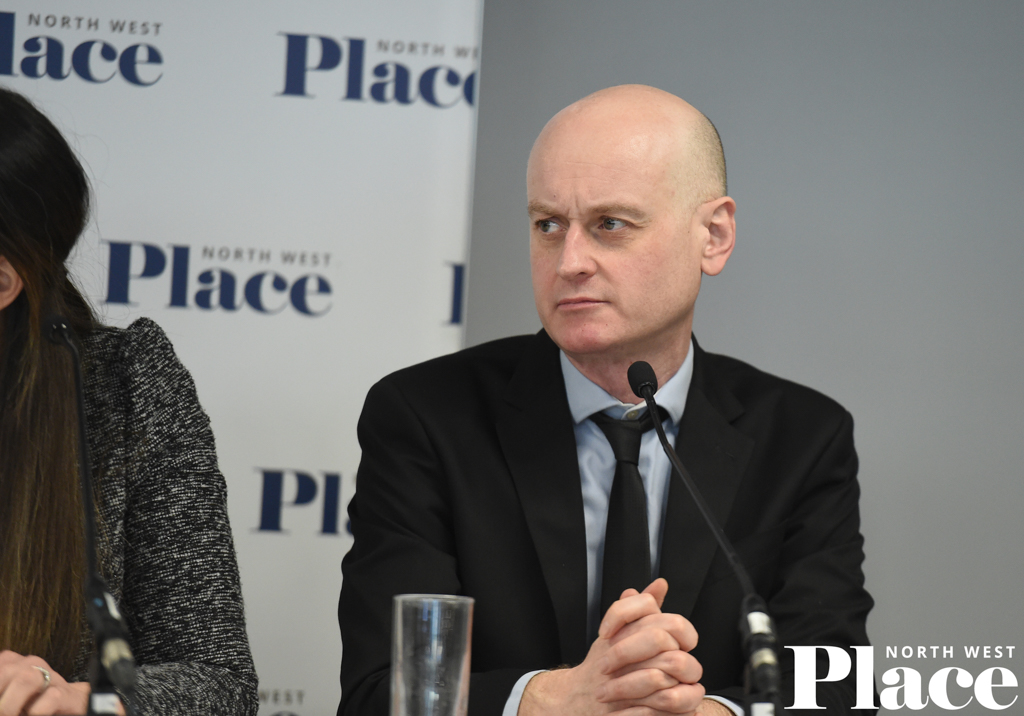

















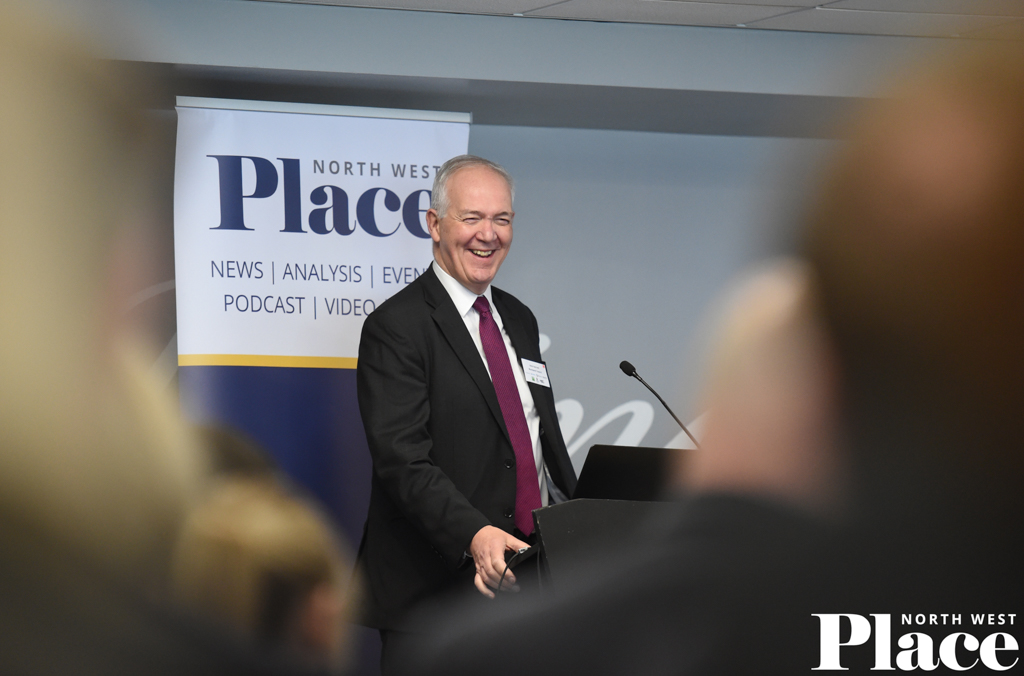
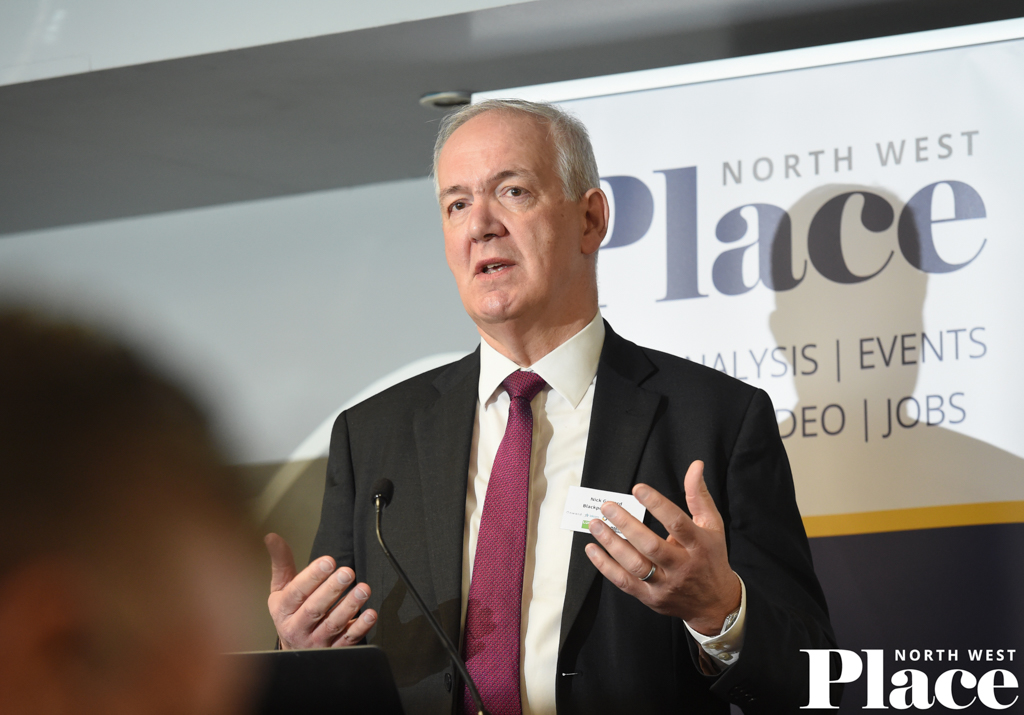
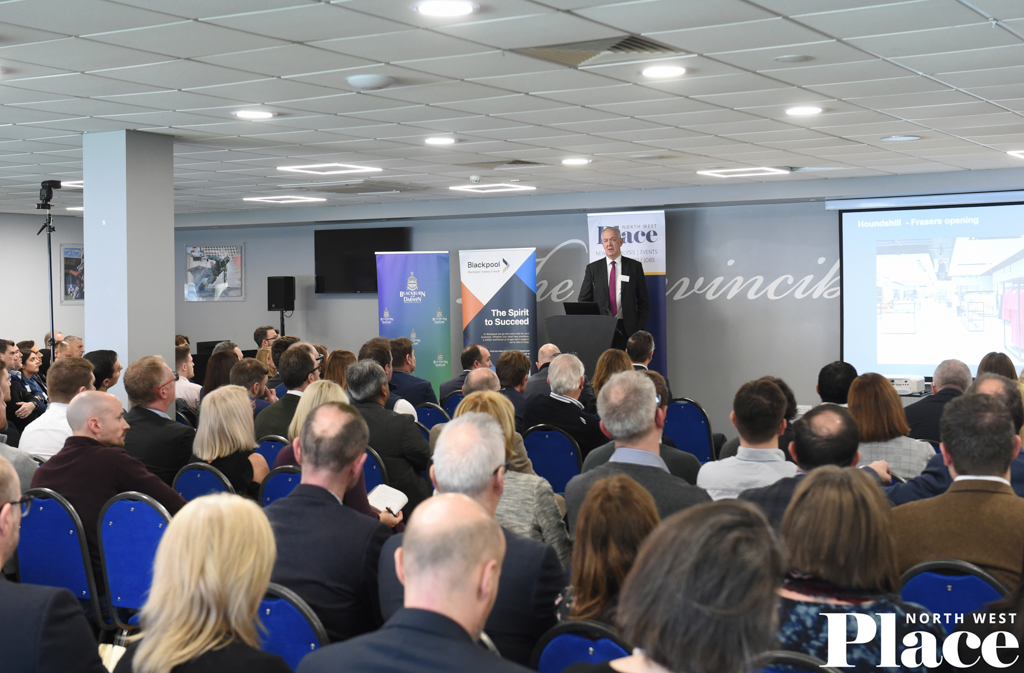

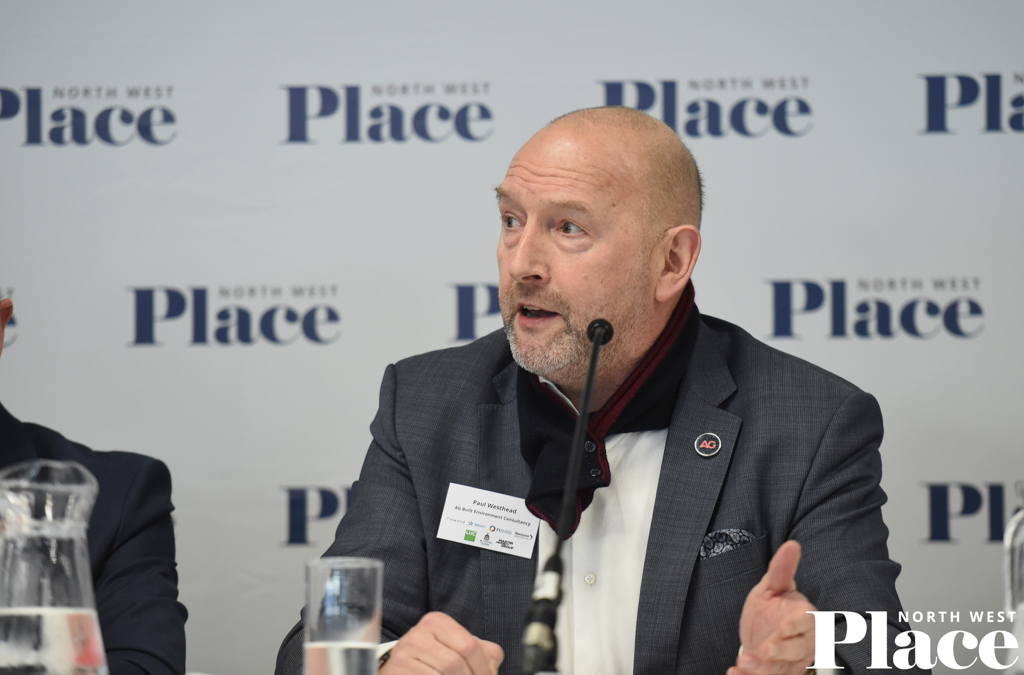

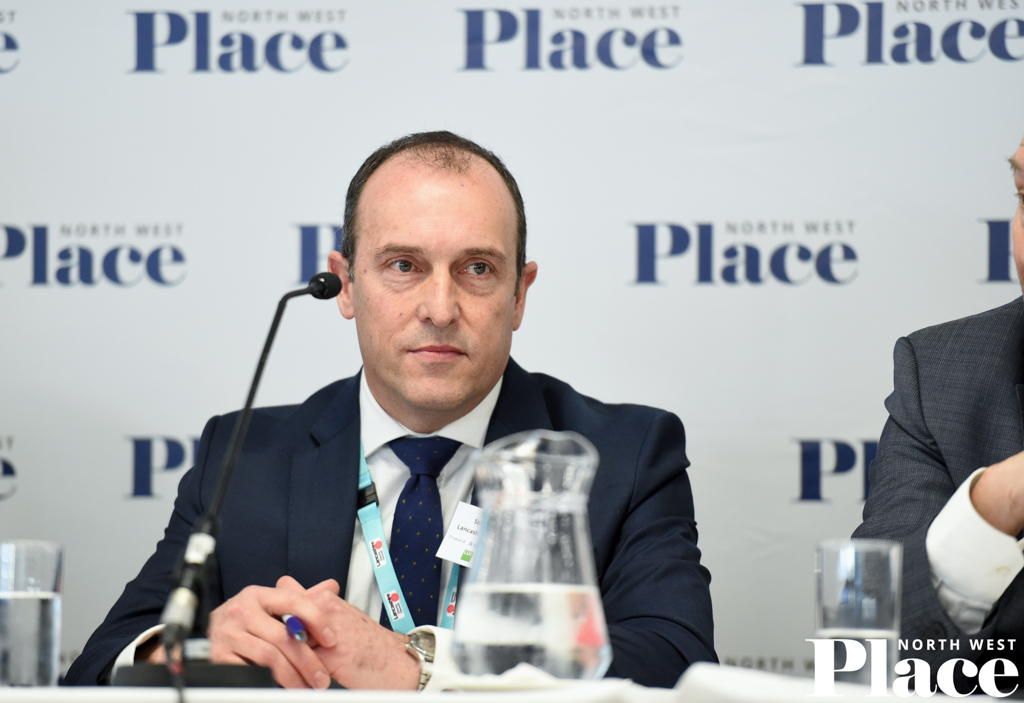
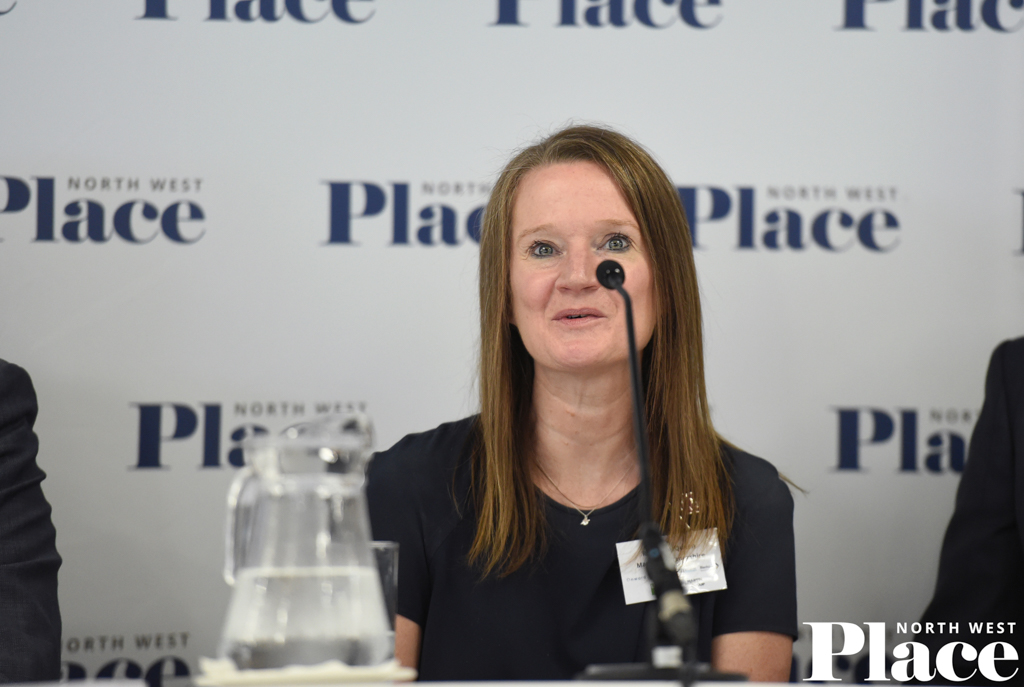
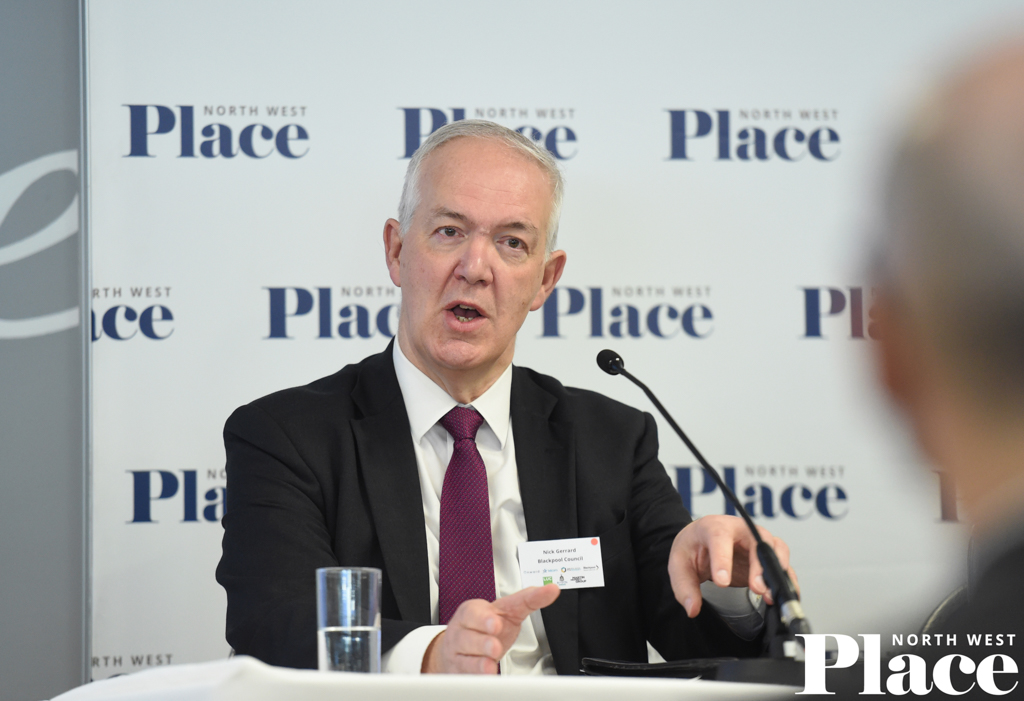

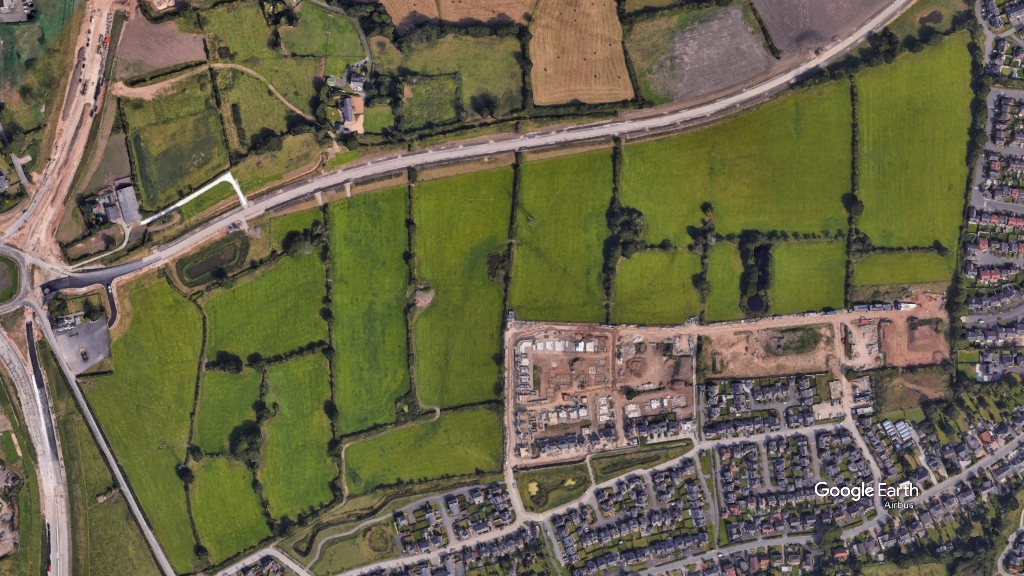

Lancashire will always fail the thrive whilst the current local government structures exist . A slow cumbersome and inward looking county , tiny district councils only interested in justifying there own existence and two Unitaries , who do well but but are two small and have tight boundaries. Need for 4/5 unitary councils with a combined authority and mayor then the county may have the strategic lead and the capacity to make best use of its great assets. Until then the county will fall further behind the rest of the north who are moving quickly towards combined authorities.
By George
There seem to be many more smiles than frowns at this event, strange as it was exploring an important and difficult topic
By CharlieFarleyBA
I think the smiles show you the optimism that was evident in the room about the county’s potential. But be assured, despite the smiles there were plenty of serious discussions. – Julia
By Julia Hatmaker
@February 15, 2023 at 4:01 pm
By George
There is a Combined County Authority deal for Lancashire currently signed and in legislative etc progress.
There’s a case for reorganising the council system into about five unitary authorities (with perhaps West Lancashire going to the Liverpool City Region)
. The main thing is, we getting a Level 2 devotion deal – and this can be built upon.
By Rye